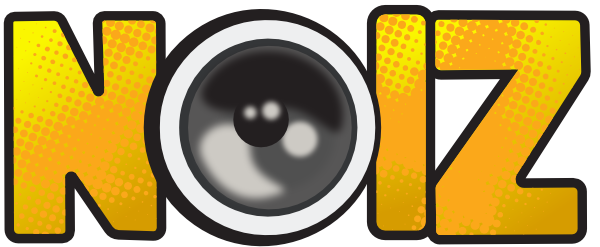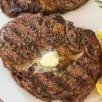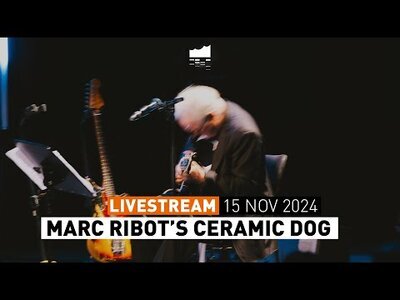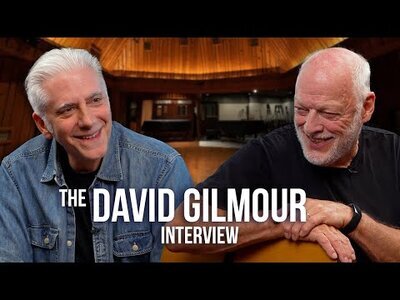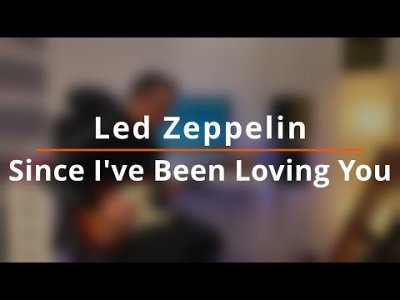ADRIAN BELEW POWER TRIO | E | Meinl Cymbals Showcase | November 2019ADRIAN BELEW POWER TRIO | E Meinl Cymbals Showcase November 2019 Adrian Belew (born Robert Steven Belew, December 23, 1949) is an American musician, songwriter and record producer. A multi-instrumentalist primarily known as a guitarist and singer, Belew is noted for his unusual, impressionistic approach to guitar playing, which, rather than relying on standard instrumental tones, often resembles sound effects or noises made by animals and machines. Perhaps best known for his long career as co-guitarist for the progressive rock group King Crimson from 1981 to 2009, Belew is widely recognized as an "incredibly versatile player" who has released nearly twenty solo albums for Island Records and Atlantic Records, blending or alternating Beatles-inspired pop-rock with more experimental fare. Belew is a member of the intermittently-active pop band the Bears, and fronted his own band GaGa in the late 1970s and early 1980s. He has worked extensively as a session and touring musician, including periods with Frank Zappa, David Bowie, Talking Heads, King Crimson, Laurie Anderson, and Nine Inch Nails, as well as contributing to hit singles by Paul Simon, Tom Tom Club, and others. Belew himself scored a Top 10 hit single in 1989 with "Oh Daddy," and his 2005 single "Beat Box Guitar" was nominated for a Grammy in the Best Rock Instrumental Performance category. Belew has also worked in instrument design and multimedia, collaborating with Parker Guitars to help design his own Parker Fly signature guitar, and designing his own iOS mobile apps, "FLUX by belew" and "FLUX:FX, the multi-effect audio processor app." Belew was born in Covington, Kentucky, to a middle-class family. Initially known to friends and classmates as "Steve Belew", Adrian Belew played drums in his teen years (playing with the Ludlow High School marching band) and later with the high-school cover band The Denems. Inspired by Jimi Hendrix, he took up guitar when he was bedridden for several months with mononucleosis. Not inclined to formal music study, Belew was nonetheless a quick developer and rapidly became a high-school guitar hero. Mostly teaching himself by listening to records, he was ignorant of the studio trickery and sound manipulation used to create particular guitar lines, and so found ways of replicating them himself manually using unusual playing techniques and a growing interest in effects and treatments. While maturing as a player and mastering various playing styles, Belew became increasingly preoccupied with ways to avoid "sounding like everybody else". He eventually found his own sound and style by learning how to make his guitar mimic sound effects such as car horns, animal noises, or industrial sounds and then applying those sounds to relatively standard songs. In the mid-1970s (and having now formally changed his first name to "Adrian", a name he had always liked and wanted to use), Belew moved to Nashville, Tennessee, to pursue a full-time career as a professional musician. By 1977, he was playing with the regionally-popular cover band Sweetheart, but wondering whether (at age 27) he had missed his chance to make a living with original music. In 1977, while playing at a Sweetheart gig at Fanny's Bar in Nashville, Belew was discovered by Frank Zappa, who had been tipped off regarding the band's talents by his chauffeur. Zappa approached Belew and discussed auditioning him for an upcoming tour, although Belew did not receive an official invitation to audition for the better part of a year. During this time Sweetheart split up. Once the formal invitation came, Belew flew out to Los Angeles and found himself auditioning alongside more formally trained musicians. Believing that he'd messed up his first audition, Belew persuaded Zappa to give him a second one. Belew's second audition was a more intimate one-on-one experience which took place in Zappa's living room. Zappa was impressed enough to hire Belew on a handshake deal for a year. Belew toured with the Zappa band and appeared on Zappa's 1979 album Sheik Yerbouti, most notably performing a Bob Dylan impersonation on the song "Flakes." He also appeared in Zappa's 1979 concert film, Baby Snakes, a document of the October 1977 Halloween week shows at New York City's Palladium. While with Zappa, Belew was mostly credited as rhythm guitarist, although he also played lead, melody, or noise lines, as well as singing lead on two songs ("Jones Crusher" and "City of Tiny Lites"). Belew has described his year in Zappa's band as a "crash course" in music theory due to Zappa's rigorous rehearsals and often technically demanding music, and has commented, "I went to the Frank Zappa School of Rock." On the recommendation of musician/producer Brian Eno, after seeing a Zappa concert in Cologne, Germany, David Bowie offered to hire Belew once the Zappa tour was finished. Belew accepted the offer, as Zappa intended to spend four months editing the film Baby Snakes. Belew then played on Bowie's Isolar II Tour in 1978; he played on the double-live album Stage, and also contributed to Bowie's next album, Lodger. Twelve years later, he returned to working with Bowie, acting as musical director on the 1990 Sound+Vision Tour, while also playing guitar and singing. In 1980, Belew formed a new band, GaGa (based in his then-current hometown of Urbana, Illinois), for which he served as the singer, guitarist and primary songwriter, as well as, via backing tapes, the drummer. By now a frequent visitor to New York City, Belew had also become friends with the up-and-coming new wave/art-rock band Talking Heads. Invited to join the band onstage for performances of their signature song "Psycho Killer," Belew impressed them with his wild and unorthodox guitar soloing and became an occasional guest performer at live concerts. Around this time, Belew also met King Crimson guitarist Robert Fripp at a Steve Reich concert. In July of that year, GaGa was invited to open several New York-area concerts for Fripp's band, the League of Gentlemen. At the same time, Belew had been tapped by Talking Heads and their producer Brian Eno (with whom he'd worked on Lodger) to add guitar solos to several tracks on the Remain in Light album, and was subsequently added to the expanded nine-piece Talking Heads live band for tours in late 1980 and early 1981. These concerts were documented in the DVD Live in Roma and in the second half of the band's 1982 live album, The Name of This Band is Talking Heads. Belew's involvement with Talking Heads extended to playing on the band's spin-off projects. He played on keyboard player/guitarist Jerry Harrison's debut album, The Red and the Black, and on several tracks on David Byrne's soundtrack to the Twyla Tharp dance piece, The Catherine Wheel (with his guitar noises credited, amongst other things, as "beasts"). At the time, the internal relationships in Talking Heads were particularly strained. The band's married rhythm section, Tina Weymouth and Chris Frantz, allegedly approached Belew with the suggestion that he should replace Byrne as the band's frontman, an offer which Belew immediately but politely turned down.[6] (In his book Remain in Love, Frantz denied that this offer was ever made.) Belew did, however, go on to work with Weymouth and Frantz on their own spin-off project, Tom Tom Club. Joining them for recordings at Compass Point Studios in Nassau, Bahamas, Belew played rhythm guitar on the sessions for the band's debut album, as well as adding his trademark processed solos (and even performing the entire instrumentation for the track "L'Elephant"). Unfortunately, Belew's experience with Tom Tom Club was less harmonious than his previous work with Talking Heads. Tom Tom Club's recording engineer, Steven Stanley, was vocal about his dislike of distorted guitar and erased the majority of Belew's solos during the mixing sessions. Worse was to follow when Belew queried Weymouth about songwriting credits, having co-written several of the album's songs in addition to his playing. He was apparently "ghosted," with Weymouth no longer returning his phone calls. Belew did not play live with Tom Tom Club or contribute to any further sessions. Recalling the situation when interviewed twenty years later, he claimed that he had opted to pursue other work rather than involve himself in legal or personal struggles with Weymouth and Frantz, and that he had chosen not to let it bother him, as several other, more promising projects were happening for him at the same time.[6] By now Belew's rising profile had gained him a solo record contract with Island Records. During the recording of the debut Tom Tom Club album, members of GaGa had joined Belew at Compass Point and backed him on a set of parallel sessions which would result in Belew's first solo album, 1982's Lone Rhino. The album provided a home for various GaGa songs and blended various elements of Belew's work over the past decade, including snappy and noisy Zappa/Byrne-influenced songs, dabblings in world music, opportunities for animal/mechanical sounds on guitar, and sonic experiments reminiscent of Jimi Hendrix or The Beatles. It also included an instrumental duet between Belew and his four-year-old daughter Audie (the latter improvising on acoustic piano, with Belew adding a processed guitar counterpoint). Adrian Belew was the singer, second guitarist and frontman (as well as occasional drummer) for King Crimson from 1981 to 2009, one of the longest tenures in King Crimson by anyone other than founder Robert Fripp. He maintained this position despite several splits or hiatuses in group activity, and notwithstanding a brief period in the early 1990s when Fripp unsuccessfully invited singer David Sylvian to front a possible new version of the band. Belew's involvement with the band began while he was still involved with Talking Heads. Having been impressed by Belew's work with GaGa and David Bowie, Fripp asked Belew to join his new four-piece band (at that time called Discipline) as singer and second guitarist. At the time, Belew was busy not just with Talking Heads but also with the imminent Tom Tom Club sessions and the recording of his debut solo album. However, he realized that Talking Heads' internal politics would eventually either sideline or obstruct him (coupled with the fact that the band looked as if it would be on hiatus for a while). Belew opted to uncouple himself from Talking Heads and join Fripp, with whom he would have more opportunities to develop and express himself. One of his conditions for joining the new band was that he would be allowed time to continue and develop his new solo career, to which Fripp agreed. The Discipline lineup was completed by the former King Crimson drummer Bill Bruford and the New York session ace Tony Levin on bass guitar and Chapman Stick. During initial touring, the members of the band discussed the possibility of renaming themselves King Crimson. This had not been the original intention for the band, but all members generally agreed that this would be both appropriate and useful. This made Belew the first guitarist to formally play alongside Fripp within King Crimson on an equal footing (although both Ian McDonald and John Wetton had occasionally contributed extra guitar to previous King Crimson recordings).[citation needed] He was also the first King Crimson singer to write all of his own lyrics. The renamed band released and toured the well-received Discipline album later in 1981, bringing Belew further acclaim. The follow-up, 1982's Beat, proved harder to record. Finding himself responsible for the bulk of the band's songwriting and dealing with the extra pressures of being the frontman in a high-level group, Belew squabbled with Fripp over the group's approach and sound. Disagreements were mostly resolved and the band continued to find success as a live act. However, 1984's Three of a Perfect Pair proved tortuous to write, and although King Crimson eventually created another successful album (including some Belew experiments with fretless guitar), Fripp opted to split the band in 1984. The live album Absent Lovers: Live in Montreal (originally a radio broadcast, released as an album in 1998) captured the band in full force on their last gig. Despite the disagreements of the time, the members of the 1981–1984 King Crimson maintained enough camaraderie and mutual respect to reunite in 1994 (adding second drummer Pat Mastellotto and Warr guitarist Trey Gunn) with Belew continuing as the band's singer, guitarist, and frontman. The six-piece King Crimson toured successfully and were together until 1997, releasing the THRAK album and several live recordings. From 1997 onward, Belew participated in several of the ProjeKcts, a series of instrumental and experimental King Crimson side projects active during the band's hiatuses, in which he predominantly played electronic drums. Belew was a member of the slimmed-down quartet version of King Crimson (minus Bruford and Levin) which played and recorded between 2000 and 2004, releasing the construKction of light and The Power to Believe (in addition to several live albums and EPs), as well as touring as an opening act for Tool in 2001. After a further four-year hiatus, the band returned to active work in 2008 as a five-piece (with the addition of Porcupine Tree drummer Gavin Harrison, and Levin returning to replace Gunn). From 2000 through 2008, King Crimson used Belew's studio at his home outside Mount Juliet, Tennessee, for rehearsals and recording. In September 2013, following yet another four-year band hiatus, Fripp announced the formation of a new seven-piece King Crimson which did not include Belew. Belew stated on his Facebook page that Fripp had told him that he "would not be right" for what Fripp had in mind for the new version of the band. Although he has frequently worked as a lead singer, Belew is best known as a guitar player with a highly unusual but accessible playing style (featuring bizarre electronic tones, unorthodox playing techniques, and a wide variety of sonic effects, including guitar-based impressions of animals, birds, insects, vehicles, and mechanical noise). Among his best-known guitar playing is the riff to Tom Tom Club's "Genius of Love," the overdriven solos on Talking Heads' "The Great Curve," the wild whammy-bar melodies on his own Top 10 hit "Oh Daddy," and the careening elephant impressions on King Crimson's "Elephant Talk." Part of Belew's sound creation involves physical techniques including tapping, pick scrapes, bending the neck, unorthodox use of the guitar slide, and occasional employment of objects (such as files) to attack the strings. In his riffs, he generally includes fret intonation work, and is even known to produce sounds from off the fret board, including the stringed portion of the nut and bridge. He is widely considered to be a master of the tremolo arm (whammy bar), something which he humorously referred to in his song "Twang Bar King" (which itself features a whammy-bar solo). Belew uses a wide variety of heavily synthesized and electronically altered guitar tones. Over the years he has become known for playing various guitars processed through an immense array of electronic effects devices ("I'm surrounded by guitar pedals, though. I can't step out the ring I'm surrounded in without stepping on a pedal," he told Adelaide.now in 2008.[9]) He has also stated that he composes specifically for certain amps and effects. Lamenting the demise of one specific amplifier made by now-defunct Johnson Amplification, he said, "I wrote specific sounds and types of looping and things that I just can't seem to make other amps do." While he has used many brands of effects pedals, Electro Harmonix was one of his mainstays. Belew is a pioneer of guitar synthesizers, having been one of the first players to bring them to, and consistently use them in, popular music. In the late 1970s and early 1980s, he was a user of the Roland GR300 (alongside Andy Summers, Pat Metheny, and Robert Fripp). In the late 1980s and the 1990s, he used the Roland GR1. He now favors the Line 6 Variax digital modelling system. In the early 1980s, Belew was notable for owning and using a rare Roland GR505 fretless guitar synthesizer. Belew's first guitar was a Gibson Firebird that he bought for $170. Belew now has a signature Parker Fly guitar, the company's first. Belew has also been seen playing an extraordinarily flexible rubber-neck guitar in the Laurie Anderson film Home Of The Brave and in the video for his 1989 single "Oh Daddy." In 2007, he revealed that the guitar's neck was rubber containing "metal vertebrae" and that it was solely a visual (and unplayable) prop. As a singer, Belew is noted for the distinct, nasal, sometimes manic feel of his vocals. His singing voice is often compared to that of Talking Heads' David Byrne, with whom Belew worked between 1979 and 1981. In addition to his singing and guitar playing talents, Belew is an accomplished drummer and percussionist, and also plays bass guitar, upright bass, keyboards, and cello. Belew has cited Jimi Hendrix, The Beatles, Jeff Beck, Igor Stravinsky, and George Gershwin as particular influences. He has also cited Spike Jones as an influence for the goofy and absurdist humor that occasionally appears in his lyrics. Adrian Belew – guitar Julie Slick – bass Jordan Perlson – drums https://adrianbelew.net
Posted by Abrasivo Cultural on Friday, June 25, 2021
-
 3
3
